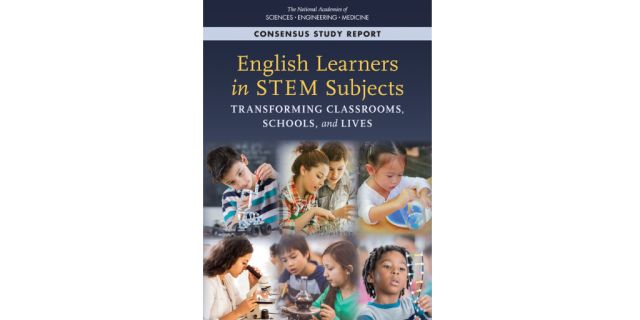
A shift is needed in how science, technology, engineering, and mathematics (STEM) subjects are taught to students in grades K-12 who are learning English, says a new report from the National Academies of Sciences, Engineering, and Medicine.
Educators should recognize the assets that English learners bring to the classroom and open avenues to success in STEM for the students and their families, the report adds.
“All students, including English learners, should have opportunities to participate in science, technology, engineering, and mathematics learning,” says David Francis, Hugh Roy and Lillie Cranz Cullen Distinguished Professor at the University of Houston and chair of the committee that wrote the report.
“Organizing schools and preparing teachers so all students can reach their full potential in STEM can transform the lives of individual students as well as the lives of teachers, schools, and society as a whole.”
According to the federal definition, an English learner is a student who is aged three through 21; enrolled in an elementary or secondary school; whose native language is a language other than English; and whose proficiency in speaking, reading, writing, or understanding the English language may be sufficient to deny the individual the ability to successfully achieve in classrooms where the language of instruction is English.
English learners comprise a diverse and multi-talented pool of learners that is increasing, in size and percentage of the U.S. school population, the report says.
The report says that English learners develop proficiency in STEM subjects and language when they are engaged in meaningful interaction in the classroom with teachers.
However, many STEM teachers are not prepared to provide robust learning opportunities that foster knowledge and language development in their classrooms.
The report recommends that teachers and teacher candidates should be equipped with the tools and preparation to engage and position English Learners in STEM learning.
Additionally, curriculum developers, educators, and researchers should work to develop materials and resources that consider the diversity of English Learners’ needs and strengthen teacher skills to improve STEM instruction and promote ELs’ learning.
The study was sponsored by the National Science Foundation.
The U.S. Army Corps of Engineers has been tasked with…
Brown and Caldwell, a leading environmental engineering and construction firm,…
Humboldt State University, one of four campuses within the California…